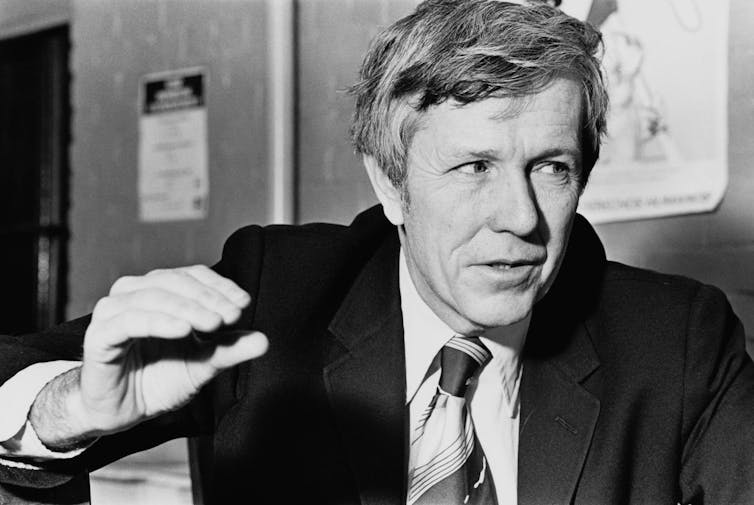Old adages can often come across as trite. But a trite old adage, we always need to remember, can also speak truth. Consider, for instance, the time-worn maxim that immediately comes to mind whenever we see the awesomely affluent stumble in their personal lives. Just another reminder, we tell ourselves, that “money can’t buy happiness.”
Earlier this week, Billionaire America’s most celebrated couple, Bill and Melinda Gates, stumbled. The pair announced Monday they’re divorcing after 27 years together. Money, apparently, still can’t buy everything that really matters.
Even money by the billions upon billions. The three richest individuals in the world—Bill Gates, Jeff Bezos, and Elon Musk—have now all turned out to be divorced men. Musk leads that parade. He’s already divorced a life-partner three times.
What’s going on here? Does this week’s latest billionaire break-up have something profound to tell us? Let’s dig a bit. And where might we start? How about here: No one—at least no one who claims to be leading a rational life—pursues wealth simply to become wealthier.
Reasonable people and societies treat wealth as simply a means to an end. Greater wealth, we believe, can improve our lot in life, help us become, in a word, happier. But ever more wealth, we also understand, doesn’t ensure us ever more happiness.
“Many very rich men are unhappy,” as the ancient Greek historian Herodotus intoned, “and many in moderate circumstances are fortunate.”
“It’s pretty hard to tell what does bring happiness,” quipped Frank McKinney Hubbard, the early 20th-century Indiana humorist, over two millennia later. “Poverty and wealth have both failed.”
Few of us today would quibble with either Herodotus or Hubbard. We generally look askance at people who turn their lives into single-minded races after riches. So do most social scientists who’ve done research into what makes us happy. Their work suggests a possible social formula for happiness: If most people in a society can sit back, think about their personal situation, and conclude they’re doing better than they used to be doing and about as well as most everyone else, you have the makings of a generally happy society.
The world’s wealthiest nation, the United States, doesn’t come close to fitting this profile. Average Americans today are not contentedly contemplating how nicely their personal fortunes have improved. They’re struggling to get by, to catch up to where they expected to be, and watching while other people—incredibly wealthy people—seem to be leading ever more luxurious and comfortable lives.
And what about those incredibly wealthy people? Most of us have learned not to take their luxury and comfort at face value. Every week, we thumb through the magazines at supermarket checkout counters and read about how wretchedly unhappy the personal lives of rich people can sometimes be. Even storybook couples—like Bill and Melinda Gates—can split. Their wealth cannot fix what ails them.
“Money brings some happiness,” as the playwright Neil Simon once put it. “But after a certain point it just brings more money.”
And trouble. Living with great wealth can be like living amid fun-house mirrors. Wealth distorts. You can never be sure about what you see. Is this person nodding approvingly at what I say because I have expressed a keen insight or because I might contribute to her cause? Is the smile on his face a sign of undying affection or lust for my fortune?
“After I’ve gone out with a man a few times, he starts to tell me how much he loves me,” heiress Doris Duke, worth $1.2 billion at her death in 1993, noted back in her more youthful days. “But how can I know if he really means it?”
Someone who holds great wealth, suggests philosopher Philip Slater, can never know.
“If you gain fame, power, or wealth, you won’t have any trouble finding lovers,” Slater notes, “but they will be people who love fame, power, or wealth.”
The wealthy respond to this reality in various ways. Some become angry. Others become wary of any intimate relationship. And still others respond by seeking a safe refuge. They find intimacy in their fortunes.
“Money,” as the industrialist Armand Hammer boasted, “is my first, last, and only love.”
Sports impresario Jack Kent Cooke, the real estate and media tycoon who owned four different pro sports teams, might have chuckled at that line. Over his 84 years, Cooke amassed a near-billion-dollar fortune—and four wives. He died in 1997. In his will, Cooke mentioned every wife by name and left not a penny to any of them. J. Paul Getty, 20th-century America’s Big Oil king, outdid Cooke. He divorced five times.
All relationships, not just romantic couplings, tend to be twisted by wealth. Rich people “possess and enjoy early,” as novelist F. Scott Fitzgerald famously pointed out, “and it does something to them, makes them soft where we are hard, and cynical where we are trustful.”
Bill and Melinda Gates, as a couple, did their best not to become hard and cynical. They devoted substantial chunks of their time to philanthropy. Now giving, of course, can certainly be a wonderful source of joy, perhaps the greatest source of joy of all, and the wealthy, by dint of their fortunes, certainly have more to give than anyone else. But the dollars the wealthy can so easily afford to give too often bring no great joy.
For the wealthy, giving can become just another burden, partially because nearly everyone they encounter expects them to give. Billionaire Larry Tisch, a one-time fixture on the Forbes 400 list of America’s richest, often complained he received “thirty requests for money a day.” That constant drumbeat of entreaties makes giving an obligation, not a source of satisfaction. If you resist that obligation, you’ll be resented. If you accept that obligation, then you start feeling resentful. You gave because you felt forced.
Over the course of a wealthy person’s lifetime, the resentments, the frustrations, the burdens add up. For George Bernard Shaw, the most acclaimed playwright of his time, the mix did not paint a pretty picture.
“You can easily find people who are ten times as rich at sixty as they were at twenty,” Shaw would note in his seventies, “but not one of them will tell you that they are ten times as happy.”
Some exceptionally rich Americans consciously set out to overcome the burdens and strains that must always come with great wealth. These affluent steel themselves against wealth’s temptations. They set out to lead normal lives. Some of them even somewhat succeed. Mitchell Fromstein, the CEO of Manpower Inc., ended the 1990s living in the same four-bedroom suburban Milwaukee home he and his wife had purchased back in the mid 1970s, before Fromstein started pulling in several million a year. He was driving a twelve-year-old Mercedes when the Wall Street Journal profiled him in 1999.
“I’m not trying to keep up with anybody,” the 71-year-old explained. “We don’t need a lot of things to be happy.”
Any wealthy person in America could follow that sort of path. But hardly any do. Why not? If enormous wealth makes for such a burden, as so many sages over the years have contended, then why do so few wealthy people ever attempt to put that burden down? America’s sociologists of wealth have an answer. Grand private fortune, they contend, may indeed poison normal human relationships. But grand private fortune also empowers, on a variety of intoxicating fronts.
Occasionally, of course, a wealthy person will resist those seductions. Back in 1999, for instance, a Michigan-based construction mogul, Bob Thompson, sold his asphalt and paving business and shared the $130-million proceeds from the sale with his 550 employees.
“What was I going to do with all that money anyway?” asked Thompson. “There is need and then there is greed. We all need certain basic comforts, and beyond that it becomes ridiculous.”
Why can’t all rich people be like that, we wonder. If we happened to become rich, we tell ourselves, we would certainly be like that. Nonsense. If we became rich, we would feel the same burdens rich people feel—and be seduced by the same pleasures. The wisest among us, people like the essayist Logan Pearsall Smith, have always understood this reality.
“To suppose, as we all suppose, that we could be rich and not behave as the rich behave,” as Smith wrote in 1931, “is like supposing that we could drink all day and keep absolutely sober.”
“I have known some drunks who were happy at times,” the philosopher Philip Slater added half a century later, “but I’ve known no one who devoted a long life to alcohol and didn’t suffer from it, and I believe the same to be true for wealth.”
Still, as George Bernard Shaw observed in the 1920s, some wealthy people do seem to be able to live lives largely trouble-free.
“Perhaps you know some well-off families who do not seem to suffer from their riches,” Shaw noted. “They do not overeat themselves; they find occupations to keep themselves in health; they do not worry about their position; they put their money into safe investments and are content with a low rate of interest; and they bring up their children to live simply and do useful work.”
In other words, concluded Shaw, the happy rich “do not live like rich people at all.” They “might therefore,” he concluded, “just as well have ordinary incomes.”
And if they did, we might all be happier.
This post was originally published on Radio Free.

![The New York Times (8/18/20) referred to inclusion of trans girls in athletics as “decid[ing]to split high school athletes by gender identity.” The New York Times (8/18/20) referred to inclusion of trans girls in athletics as “decid[ing]to split high school athletes by gender identity.”](https://www.radiofree.org/wp-content/uploads/2021/05/nyt-trans-sports-640x656-1.png)







